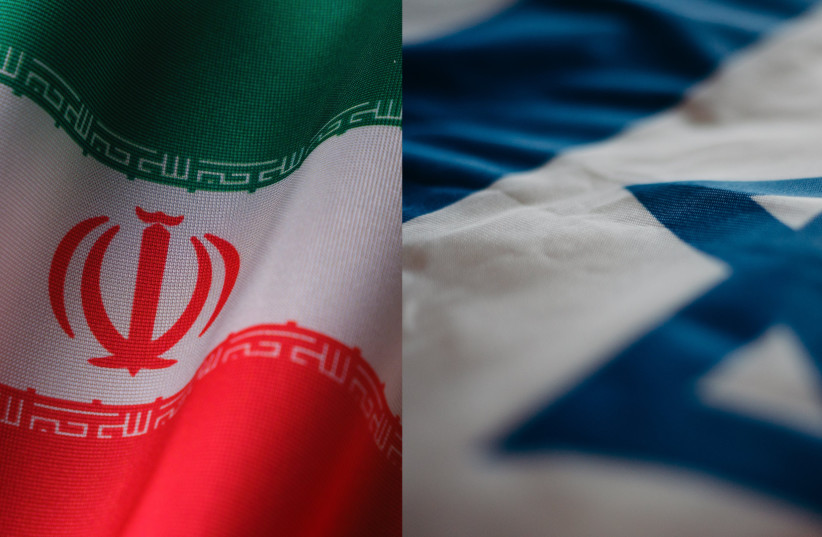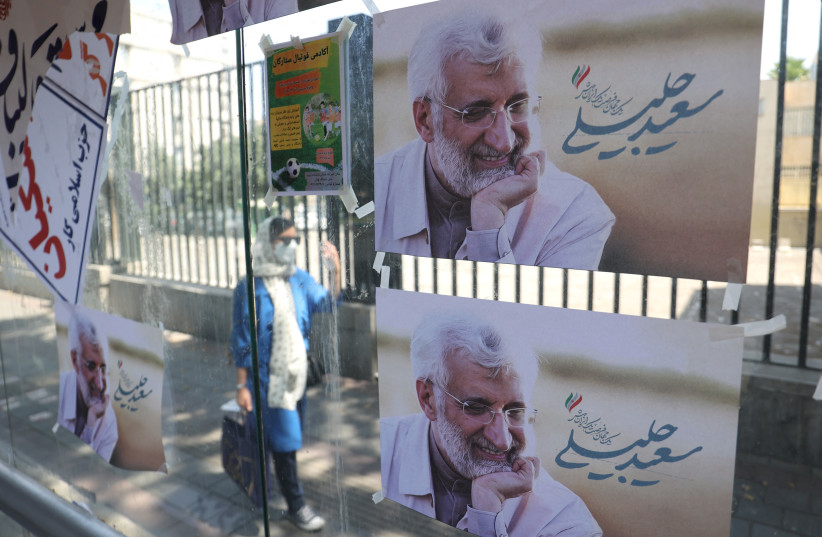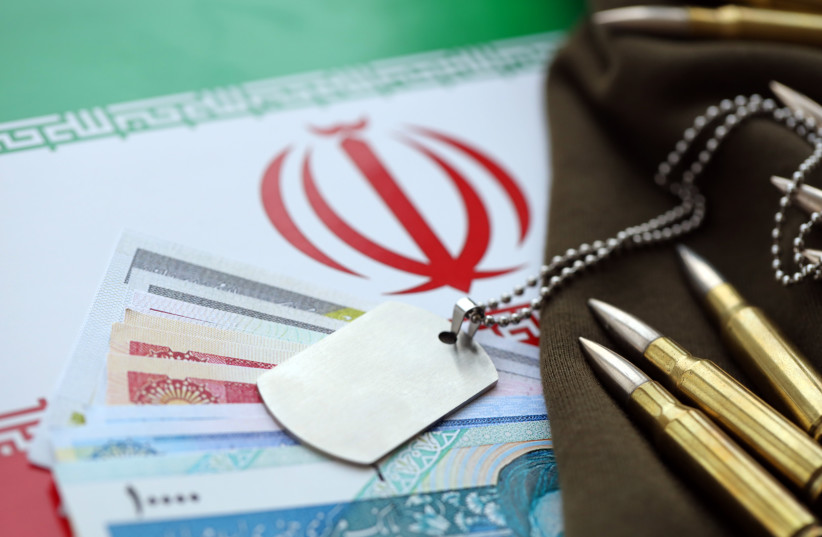The ongoing series of conflicts in the Middle East has long been seen by many as a proxy war between Israel and Iran, alongside their respective allies.
Since Iran's transformation into the Islamic Republic, the country has seen a radical shift in its ideology, and Israel and the US have become some of its most vocally hated enemies.
Israel, for its part, has long been cautious of Iran, viewing it as an existential threat, and the two countries have taken discreet action against one another through proxies and espionage.
But what are the origins of the Iran-Israel conflict, and where is it going?
Here's everything you need to know.

Where is Israel?
Israel is a country in the Middle East, specifically in the Levant region. It is steeped in thousands of years of history and has been the home of numerous civilizations and religious faiths.
Israel is bordered by Egypt, Jordan, Lebanon, Syria, and the Palestinian territories and is on the coast of both the Mediterranean Sea and the Red Sea.
While most countries consider its capital to be Tel Aviv, Israel and a few other countries, such as the United States, recognize Jerusalem as the capital.
Where is Iran?
Iran is a large country in West Asia and was home to some of history's largest empires and cultures.
The country is bordered by Turkey, Iraq, Azerbaijan, Armenia, Turkmenistan, Pakistan, and Afghanistan. Its coasts are along the Persian Gulf, Gulf of Oman, and Caspian Sea. It is also one of the most mountainous countries on Earth.
Its capital and largest city is Tehran, boasting a population bigger than many countries.
Is Iran in the Middle East?
The exact boundaries of the Middle East are subject to debate. However, Iran, being the easternmost fringe of the region, is often included in them.
How did Iran become a Muslim country?
The historical region of Iran was once home to many nations, usually called different variations of the Persian Empire. Historically, these nations practiced Zoroastrianism. However, following the fall of the Sassanid Persian Empire to Muslim conquerors, Islam began to spread in the area. Eventually, Iran would adopt Shia Islam, separating it from the Sunni Arab world.
However, the modern nation of Iran only became a Muslim theocracy in 1979 following the Islamic Revolution, when Ayatollah Ruhollah Khomeini led a revolution, overthrowing the Shah and creating the Islamic Republic.

Why does Iran want to attack Israel?
Iran and Israel had positive relations under the reign of the Shah, but the Islamic Revolution put an end to that. The Islamic Republic severed all ties with Israel and denounced its legitimacy. This was due in part to a greater emphasis on Islamic ideology, as well as solidarity with the Palestinians. Soon, Israel was regularly being denounced in Iran as the "Little Satan" compared to the "Great Satan" of the United States.
Israel, for its part, has been extremely wary of Iran since the Islamic Revolution, and the two countries have become each others' chief geopolitical rivals as well as becoming two of the major regional powers in the Middle East.
Does Iran support Hamas?
Iran is the primary state sponsor of Hamas, providing the Palestinian terrorist group with money, training, and weapons.
The exact amount of financial support is unclear, but sources have placed it to hundreds of millions of US dollars each year.
Iranian support was instrumental in Hamas being able to carry out the October 7 massacre.
Hamas is considered by many to be an Iranian proxy. It forms part of Iran's Axis of Resistance against Israel, alongside its other proxy militia groups in Iraq and Syria, as well as the major armed groups Hezbollah and the Houthis.
Why did Israel attack the Iranian embassy in Syria in 2024?
Israel is regularly alleged to have carried out airstrikes at targets in Syria, usually against Iranian forces in the area. Specifically, these are often claimed by analysts and international media reports to be aimed at taking out Iranian military infrastructure or at killing key Iranian officials.
On April 1, 2024, the IDF allegedly carried out an airstrike on an Iranian embassy compound in Damascus. This had the result of killing Mohammad Reza Zahedi, a top-ranking general in Iran's Islamic Revolutionary Guard Corps (IRGC).
While no official reasoning for the attack has been revealed, some experts, such as former IDF military intelligence chief Tamir Hayman, say that it was because Israel thought that after so many alleged Israeli airstrikes in Syria without any response, Iran wouldn't respond to this one either.

Why did Iran attack Israel in 2024?
Iran and its allies launched an unprecedented barrage of missiles and drones at Israel in mid-April 2024 in direct response to Israel attacking its embassy compound in Damascus.
For its part, Tehran sent diplomatic messages in the leadup to the attack, saying it did not want this to escalate to open warfare. Iranian Foreign Minister Hossein Amir-Abdollahian said it was simply a necessary exercise of the Islamic Republic's right to self-defense.
Ultimately, the attack was almost entirely thwarted, with Israel claiming that around 99% of all projectiles were intercepted and destroyed. However, analysts and policymakers are divided on whether Iran's actions could be perceived as a success or a failure.
Is Iran a nuclear power?
Iran is not a nuclear power, though many experts and officials claim the Islamic Republic is fast working towards that goal.
Iran does have a nuclear program, started by the Shah's regime and continuing past the Islamic Revolution, but Tehran maintains the program is entirely peaceful in nature. In fact, the Shah even said that nuclear power should be used to generate electricity to ensure the country's petroleum reserves would be used for more high-value goals.
However, there has long been suspicion that their goal is to achieve a nuclear bomb. As such, the International Atomic Energy Agency (IAEA) has scrutinized the nuclear program for a long time.
A treaty was put in place with international powers known as the Joint Comprehensive Plan of Action (JCPOA) in 2015 to help regulate Iran's nuclear program and to ensure it never becomes weaponized. However, the JCPOA fell apart after the US under President Donald Trump pulled out in 2018, thus renewing sanctions against the Islamic Republic.
Worries about Iran's nuclear program have also been expressed by Saudi Arabia, Jordan, Bahrain, and many other countries around the world. Israel has been the most vocal opponent of the nuclear program, however, and views the possibility of a nuclear Iran as an existential threat.
